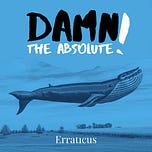Scientific inquiry is sometimes viewed as a way of getting after literal knowledge, the belief our scientific claims are a one-for-one match with reality—or what is actually happening out there in the world. However, this view requires a certainty in our beliefs or truth claims about nature that may not be justified. Furthermore, this absoluteness may lead us toward a scientism that runs counter to the openness and dynamism that animates so much of what scientists practice in their labs, field work, empirical research, and daily lives.
Alternatively, other scientists and philosophers frame scientific knowledge as metaphorical. Mitochondria is the powerhouse of the cell, for instance. Scientific claims require storytelling components and familiar imagery to help us understand what's happening at any given moment. Scientific metaphors are valid only as much as they are useful in addressing problems in our lived environments, or providing a reliable means for predicting future events.
Jessica Wahman is the author of Narrative Naturalism: An Alternative Framework for Philosophy of Mind and co-editor of Cosmopolitanism and Place. She researches and publishes on topics in American philosophy, particularly the work of George Santayana and philosophical psychology. Her current research focuses on pragmatic conceptions of the self and their implications for debates about free will. She is also a senior lecturer in philosophy at Emory University.
Wahman believes that viewing scientific knowledge as metaphorical creates not only a more fruitful approach to science, but avoids the many missteps and dogmatism that often attend more literalist ways of investigating nature and experience. This metaphorical thinking informs what she calls narrative naturalism, a non-reductive but naturalistic method for studying our world and the way things work, specifically consciousness and questions of the mind.
A few things to consider. If scientific knowledge is metaphorical, why not settle for more mythological explanations rather than material or naturalistic ones? Why should we be careful about reducing feelings or thoughts to mere brain chemistry? And, what concrete impact in our daily lives can a narrative naturalist approach have?
Show Notes
Narrative Naturalism: An Alternative Framework for Philosophy of Mind by Jessica Wahman
"So You Think There Are Laws in Nature?" by Eleni Angelou (2021)
"A Community of Consciousness: Bridging the Gap Between Mind and Matter" by Derek Parsons (2021)
"Humans Are Not Merely Algorithms" by Steve Minett (2021)
"Sentience, Not Consciousness, Is Key to the Cosmos" by Michael Jawer (2020)
S1E20 Can Pragmatism Help Us Live Well w/John Stuhr (2021)
The Origin of Consciousness in the Breakdown of the Bicameral Mind by Julian Jaynes (1976)
Scepticism and Animal Faith by George Santayana (1923)
"What Is It Like to Be a Bat?" by Thomas Nagel (1974)
"The Power of One Idea" by Jeffrey Howard (2020)










